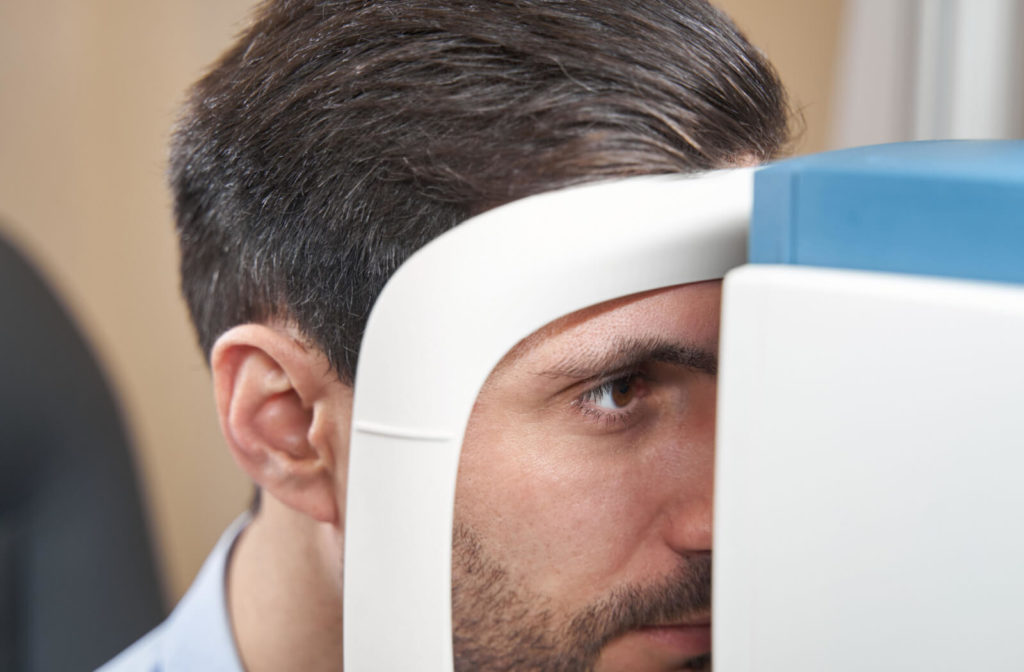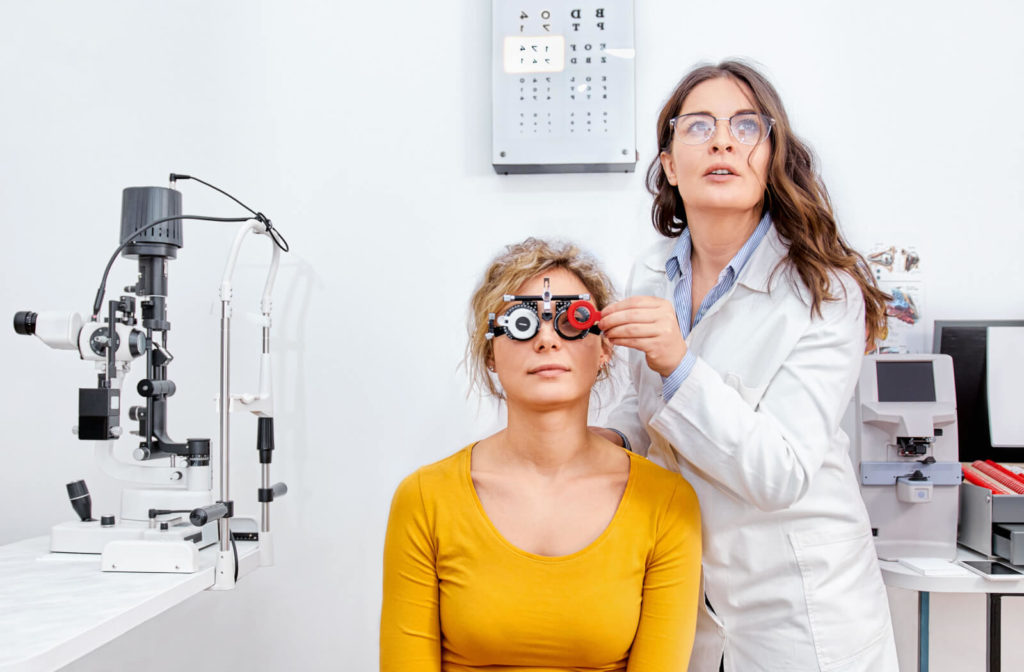Your eyes and vision are an important part of your overall health that can sometimes be overlooked. Many people think that if there are no significant changes to their vision, they may not need to have an eye exam. However, adults between the ages of 18 to 65 should get an eye exam annually, whether there are changes to their vision or not.
Annual eye exams are important as other health conditions can be detected during this exam. If there are significant changes to your vision or eyes, you should speak to your optometrist right away to help decrease the possibility of long-term damage.
Why an Annual Eye Exam Is Important
An annual eye exam is important for more than just your visual health. While regular eye exams can help with the early detection of potential eye conditions, other areas of your health can be detected through your eyes as well.
For adults and seniors who are around or above age 40, significant changes to vision and eye health can begin to be more noticeable. Many may begin to notice changes in their vision, often due to the natural aging process. Should you have a condition or change to your health that is not attributed to aging, seeing your optometrist regularly can help to navigate conditions that may arise.
Age-Related Issues
Over age 40, your vision will naturally start to change. While there are many signs and symptoms of these naturally occurring changes, everyone may experience these differently. Common symptoms that you may experience are:
- Reduction in tear production: As your body ages, your eyes will produce fewer tears as our tear ducts change.
- A need for more light: As you age, you may need to have more light around you. Depending on the task or what you are looking at, you may feel that you need to have better and more light around you to see better.
- Changes in color perception: The lens in your eye that helps you see certain differences in color, over time, will change. This could make it more difficult to distinguish between some colors and shades.
- Glare issues: You may notice that you are seeing more glare during times of high and low light. This could affect your vision when you are driving as the reflection of light off of other windshields.

When to Have More Frequent Eye Exams
There are some conditions you may experience that can necessitate increased optometrist visits due to fast-changing vision symptoms. Some of these conditions include:
- If you need to have prescription corrective glasses or need to wear contact lenses to correct a visual condition
- If you have a family history of vision problems or a family history of eye diseases or conditions
- When you are taking certain medications because there could be an increased risk for side effects that could affect your visual health
- If you have a disease that can increase your risk of eye diseases, such as diabetes
As your eyes age, there are several conditions that your optometrist will be monitoring, including:
- Cancer of the skin, blood, or tissue
- High blood pressure or high cholesterol
- Diabetes
- Heart disease
- Medication toxicities
When to See an Optometrist
Adults should have a comprehensive eye exam at least every two years, even if they do not have any vision problems. This can help to detect any early signs of eye diseases or conditions such as cataracts, glaucoma, and macular degeneration.
Depending on your individual needs and conditions, your optometrist may suggest having more frequent exams to ensure that your health is monitored more closely. There may be conditions that arise with changes to your body that could increase the need for more frequent exams.
Learn More about Your Eye Health
The team at Rancho Santa Margarita Optometry is here to care for your eyes. Whether you’re experiencing a specific condition that you would like to have our doctors assess or are wanting to understand more about your ocular health, we are here to help. Book an appointment today to learn more about how we can help you.


